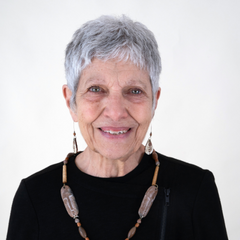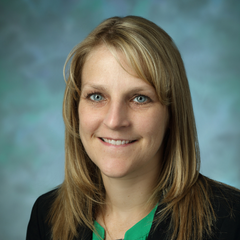Strengthening Health Care Social Work Documentation to Mitigate Bias
Date and Time
May 17, 2023
4 p.m. - 6 p.m. EDT
Offered via live webinar.
Completion of this class will result in the receipt of two (2) continuing education hours.
-
Healthcare social workers engage in discipline-specific, skilled interventions informed by training, best practices, and attunement to social justice. Documenting assessments and interventions clearly communicates the value of the social work perspective, skills, and contributions and influences outcomes while also contributing to the learning of those who read our work. This class will review the literature on bias in documentation in the medical record, a focus driven by the advent of “open notes” as of April 2021. Sample patient notes and narratives will be used to illustrate how social work documentation communicates best practices and has the potential to mitigate bias while integrating the impacts of social determinants.
No matter the setting, word choice is foundational to communication and documentation and significantly impacts patient family experiences, decisional outcomes, bereavement, and legacy. We will explore attributed meanings underlying words and phrases used in healthcare and unintended consequences. Our spoken words are often reflected in the written words and phrases used in documentation in a medical record, which is a permanent record influencing care. This class will expand on language and word choice, and highlight the ethical responsibility in documenting authentically and with the awareness that documentation is permanent, creates opportunities to mitigate bias, and can maximize the impact of the social work lens of “person in environment.”
LEARNING OBJECTIVES
After taking this class, participants will be able to:
- Link common language used in healthcare settings to challenge social workers to advocate for word choice that mitigates blame of individual and integrates social determinants of health in assessment and documentation.
- Engage social work and interprofessional colleagues to consider documentation that empowers and reflects the ethical mandate to mirror authenticity in assessment.
- Enhance documentation to reflect expertise in communication with a consequent responsibility to continue to build skills in documentation that enhance care of patients and families and contribute to the mitigation of bias in ongoing decision making driven by a permanent medical record.
-

Terry Altilio LCSW, APHSW-C
Terry Altilio is a palliative social work consultant with 34 years of direct practice experience in palliative care, most recently in the Division of Palliative Care at Mt Sinai Beth Israel Medical Center. She is a recipient of a Mayday Pain and Society Fellowship Award 2006 and a Social Work Leadership Award from the Open Society Institute’s Project on Death in America, which supported a social work post graduate fellowship and a social work listserv, both of which are continuing programs. In 2013, Terry was selected to receive the Project on Death in America Career Achievement Award from the Social Work Hospice and Palliative Network. She lectures nationally and internationally on topics such as pain management, ethics, palliative care, and psychosocial issues in end-of-life care. She lectures in post-masters programs at NYU, Smith, and is guest faculty in an internet course through California State University San Marcos. She has co-authored publications and is co-editor with Shirley Otis- Green and John Cagle of the 2nd edition of the Oxford Textbook of Palliative Social Work and co-editor with Bridget Sumser and Meaghan Leimena of Palliative Care – A Guide for Health Social Workers.

Anne Kelemen, LICSW, APHSW-C
Anne Kelemen is the Director of Psychosocial/Spiritual Care for the Section of Palliative Care at MedStar Washington Hospital Center in Washington, where she conducts patient care, teaches, and participates in various research activities. She has published articles on intimacy and chronic illness, word choice, and language and recently published a case series on caring for patients with COVID-19. She also is the Director of the Social Work Fellowship program, which she created in 2019. Prior to joining the Hospital Center staff, Ms. Kelemen instituted the first palliative care service at MedStar Good Samaritan Hospital in Baltimore, Maryland. An Assistant Professor of Medicine at Georgetown University Medical Center, her research interests include the intersection between language and medicine and intimacy and chronic illness. Anne is also the Chair of the Social Work Hospice and Palliative Network, the national organization of palliative and hospice social workers that has over 1000 members.
-
Class fees are listed below:
- Full Tuition - $60
- GSS Alumni - $50
- Current Field Instructor - $50
- Current Adjunct Faculty - $50
- SWHPN Member - $50
- 3+ members registering from one agency - $40 per registration
- Non-Fordham Current MSW or Social Work PhD Student - $40
- Veterans - $40
- Fordham Faculty and Staff - $40
- Current Fordham MSW or PhD Student - $30
- Fordham Alumni Palliative Care Fellow - $30
- Current Fordham Palliative Care Fellowship Field Instructor/Career Mentor - $30
- Current Fordham Palliative Care Fellow or Montefiore Fellow - $0
Continuing Education Hours
Completion of this class will result in the receipt of two (2) continuing education hours. CEHs are not awarded for partial completion of the class.
-
You will receive the Zoom link for joining the class by the day before the class. IF YOU HAVE NOT RECEIVED THE LINK BY THIS TIME, PLEASE CHECK YOUR SPAM FOLDER.
You will need a computer and a reliable WiFi connection. The computer may be a desktop or a laptop. It may be an Apple or Windows computer.
If you have never used Zoom before, you will likely be prompted to download an applet, which is a small program that allows Zoom to communicate with your computer. This is safe and you will need to do this to join the class.
It is NOT advised that you participate using a table (e.g., an iPad) or a cellular phone. The software is not optimized for these devices.
Please plan to join the online class 15 minutes before the start time to be sure that you don’t have any problems connecting. We cannot provide technical support to you and refunds won’t be offered if you have technical problems. If you have any questions or concerns about this, please contact us at [email protected] at least a few days before the class.